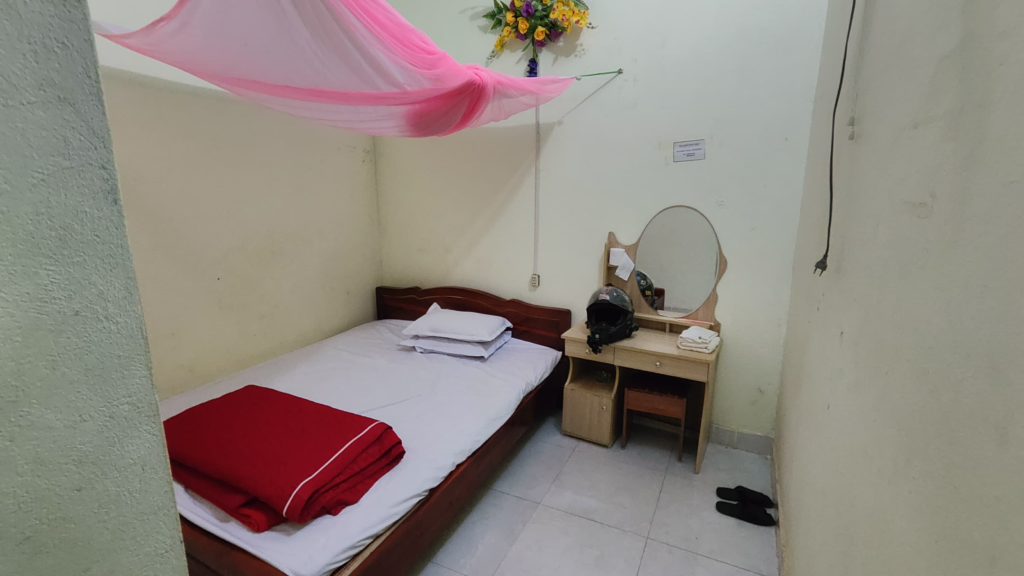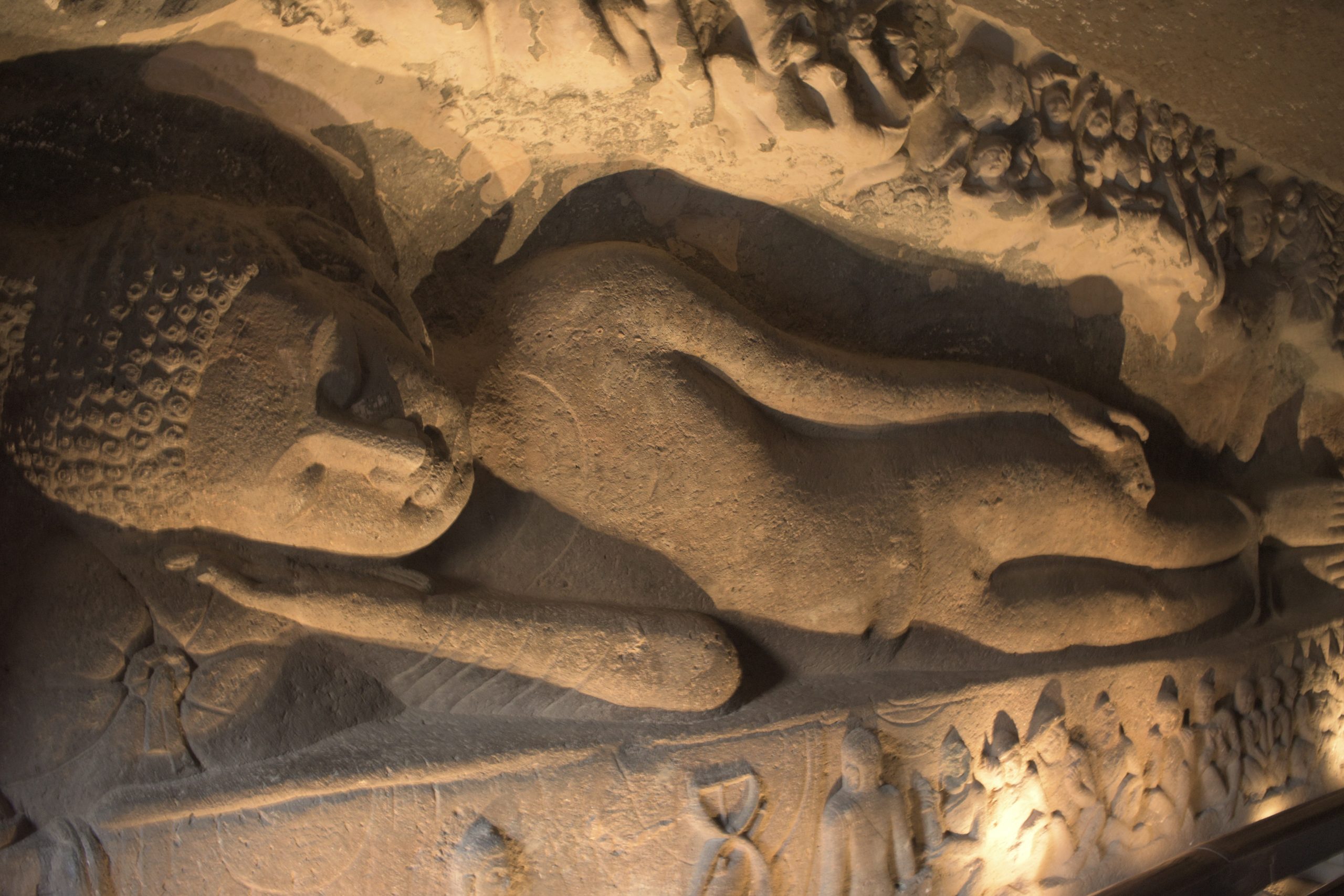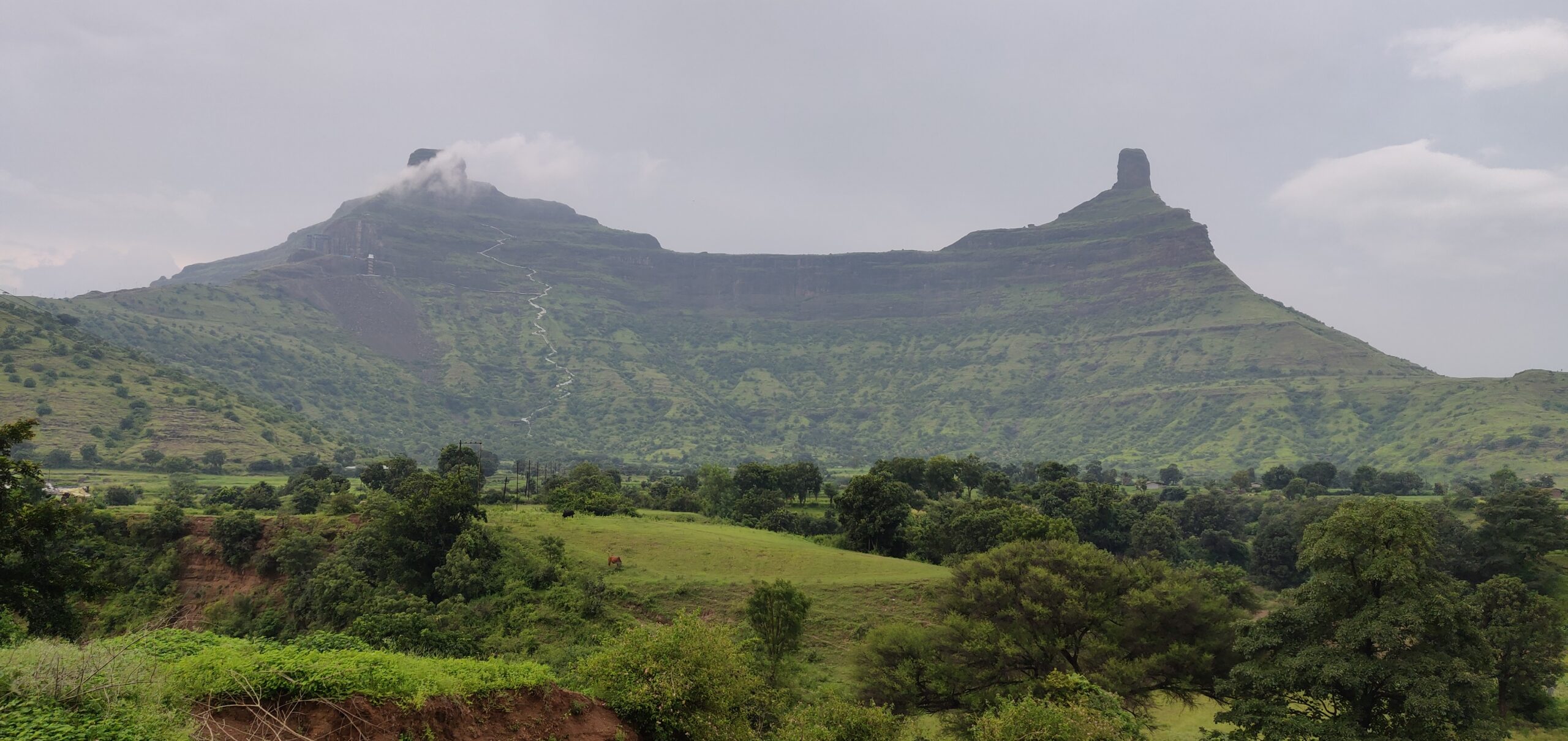Tour of Vietnam 2023 | Day 6 | Thất Khê – Cần Yên | 245 kms

I wake up around 5 am, and by 6 am, my bike is loaded and ready to go. I pay the owner 150,000 VND and prepare my instant coffee, which I had already purchased. The owner kindly provides a glass and hot water. I leave as soon as my coffee is ready. The weather is cold and cloudy, and soon my hands go numb; the leather gloves offer no protection in this chill.
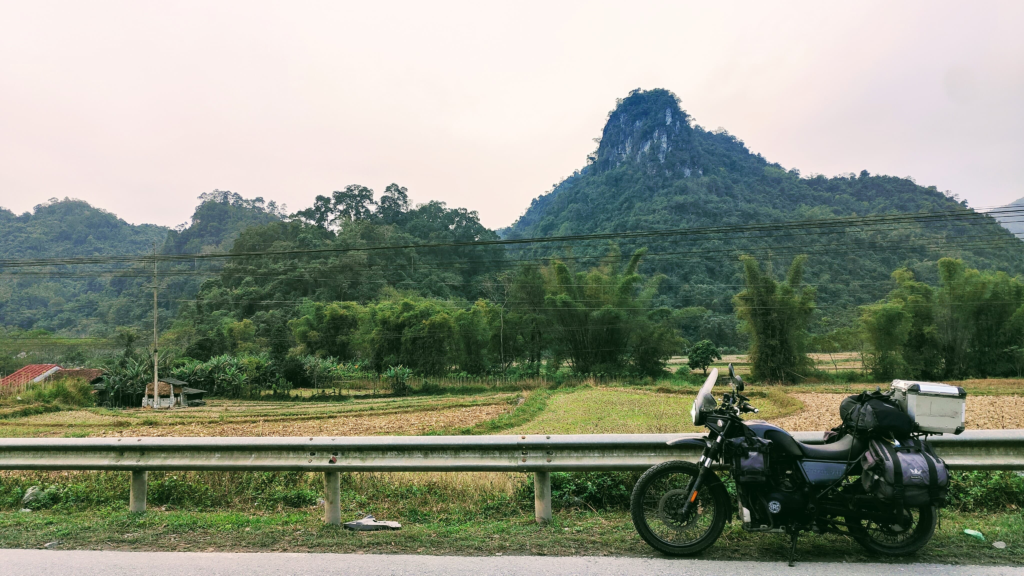
I misjudged Vietnam’s weather. The stunning views of harvested green fields and towering limestone mountains resemble pawn pieces on a chessboard. I pause at one breathtaking spot to take a photo and enjoy my homemade energy snack. Despite my numb hands, the scenery makes up for it.

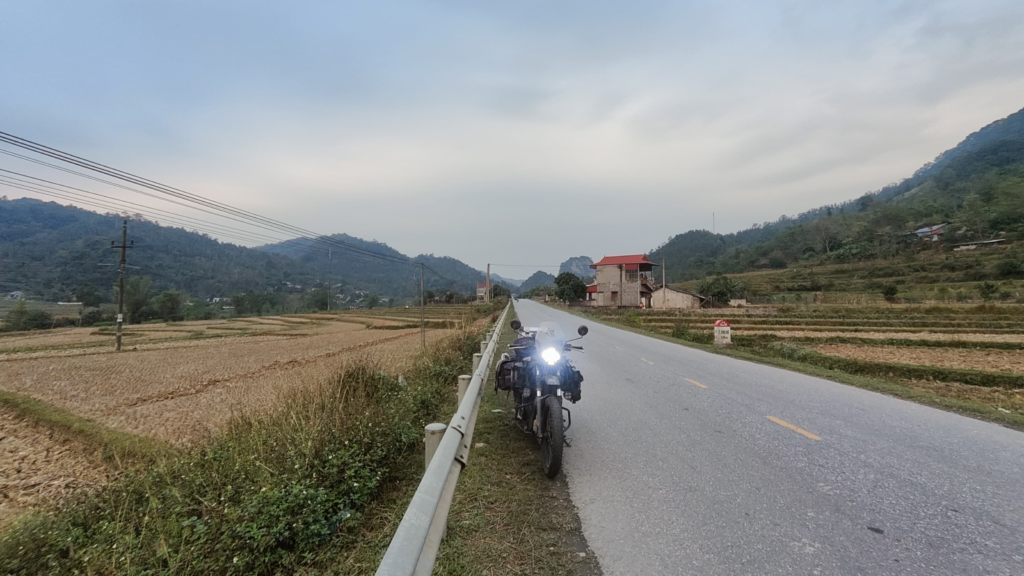
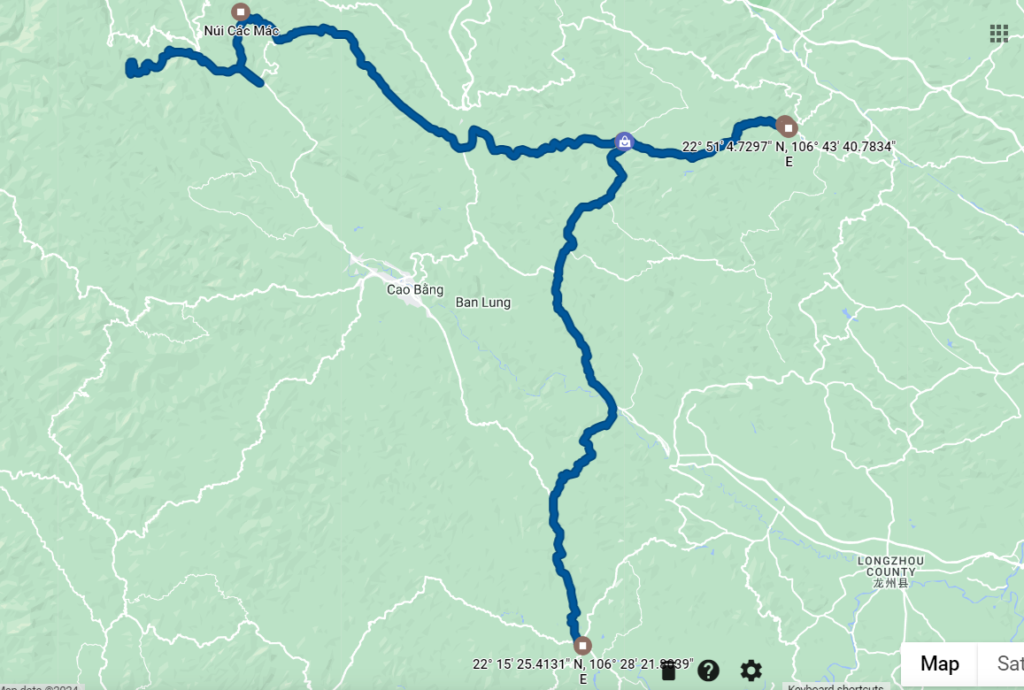

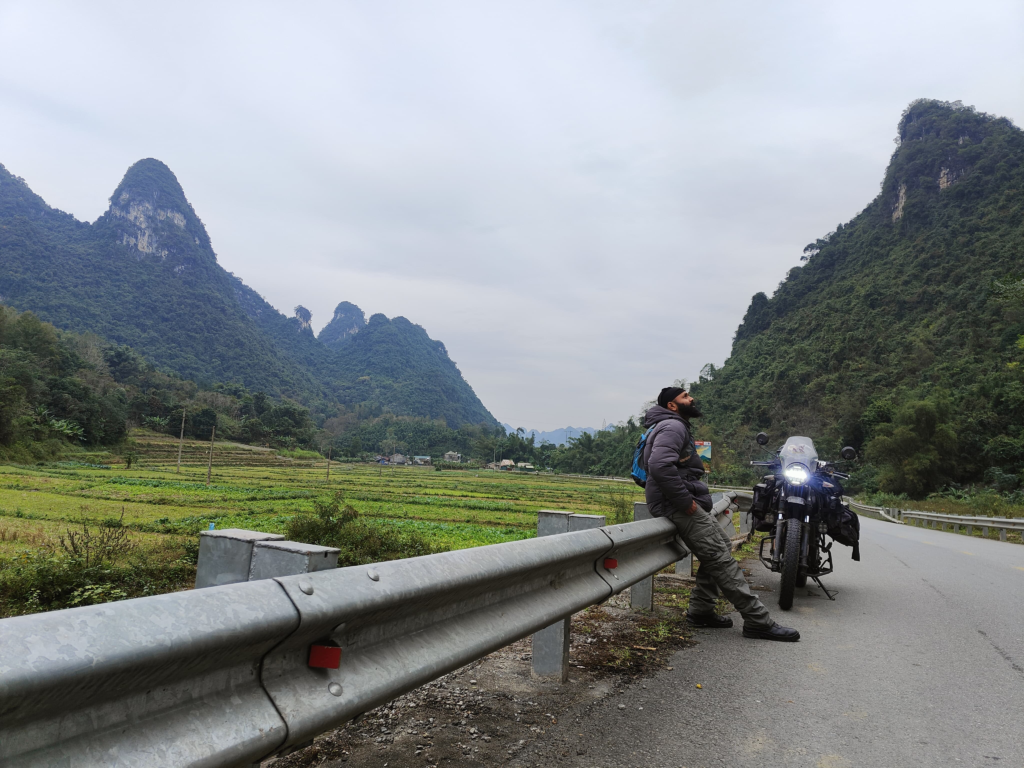
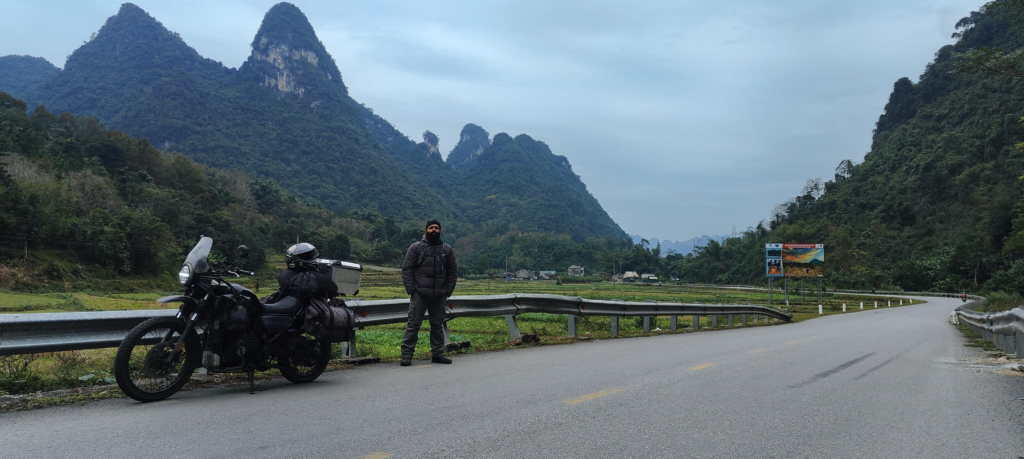
After some time, when my fingers go numb again, I stop at a roadside market for coffee. I buy toothpaste and a glass, so I can make coffee on the go without asking for a cup each time. Holding the hot glass provides some relief for my hands. I consider buying oversized gloves but the shop lady introduces me to handlebar-mounted gloves. She demonstrates how to attach them, explaining that they are tied to the handlebar with ropes and allow you to insert your hands through cutouts for the levers and grips. I’m impressed, having seen others using them on their bikes. I thank her and pay 50,000 VND for this special glove. For added protection, I wear my leather gloves before inserting my hands inside.
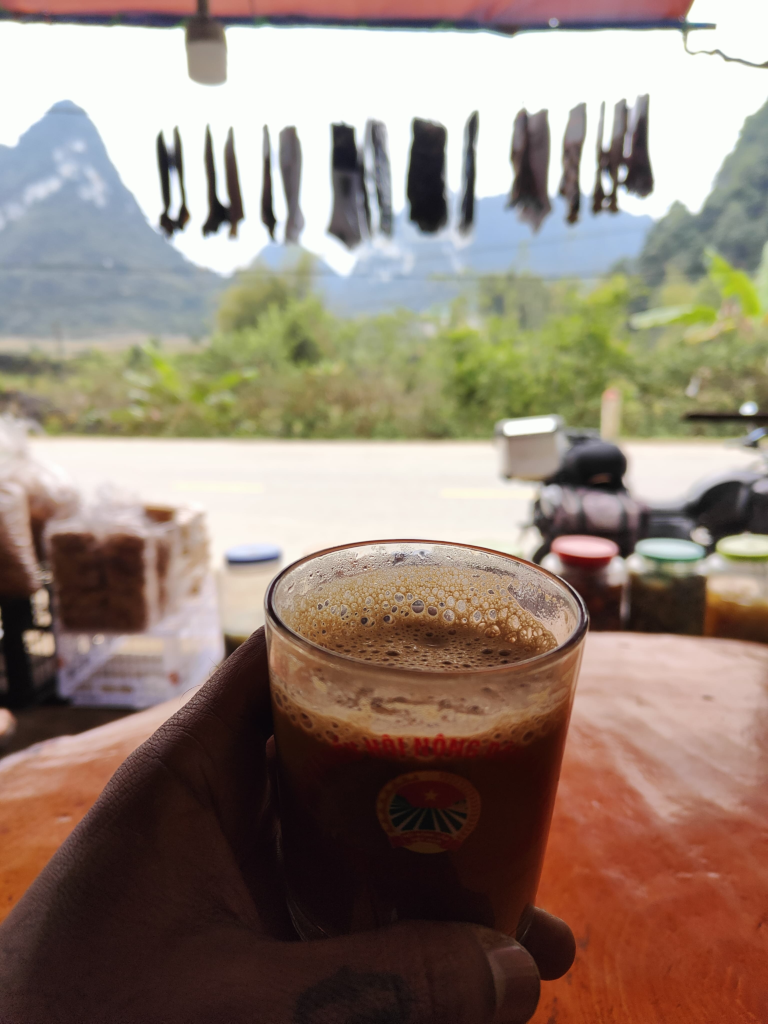
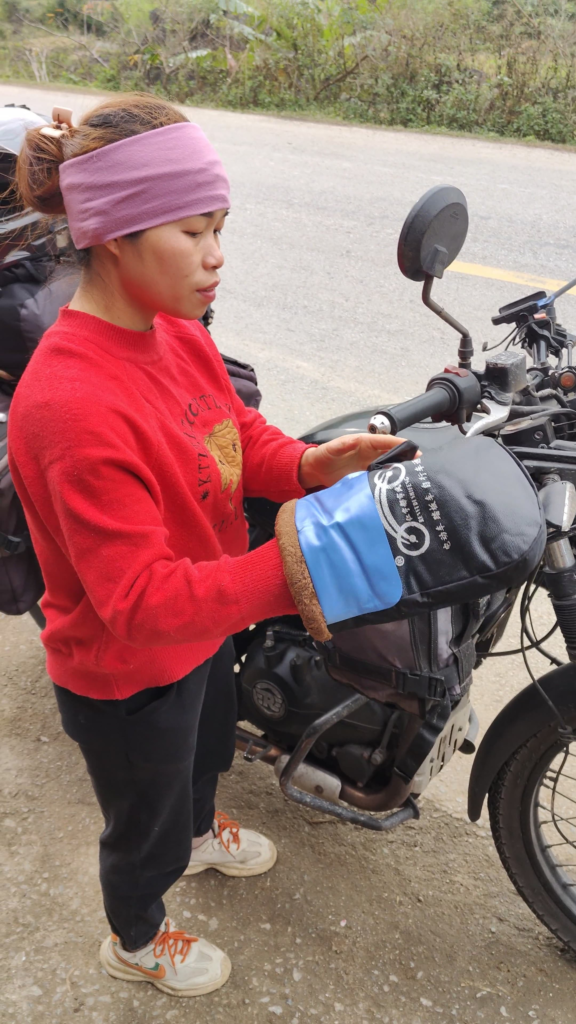
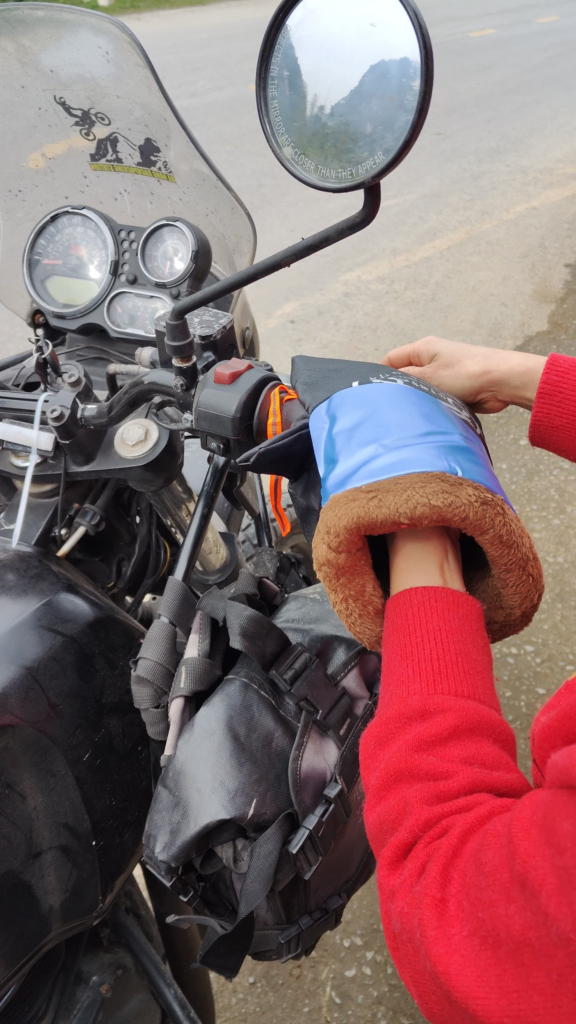
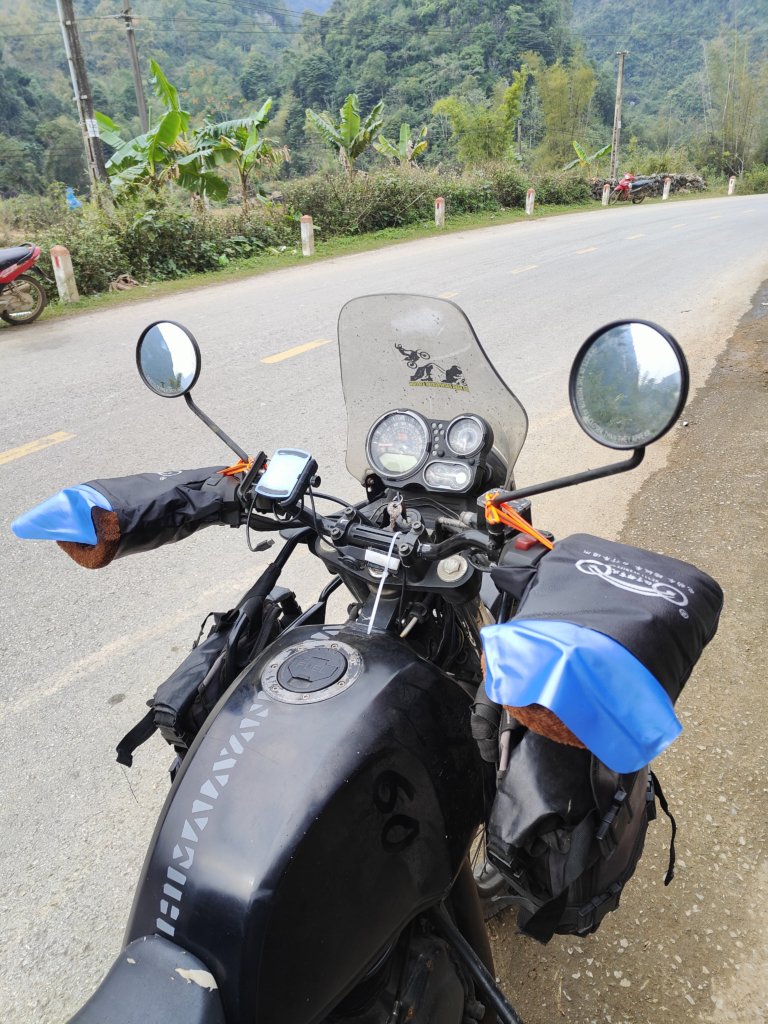
I quickly feel my fingers warm from the double protection. Operating the levers requires some practice, but I remind myself that I will master it eventually. I press on and reach my first stop, the Ban Gioc Waterfalls. In the parking lot, I meet two riders on BMW and Triumph from Cyprus, who have just finished visiting the falls. We take some pictures before I head to the entrance, where the ticket costs 40,000 VND. It’s a 500-meter walk to the waterfalls, and the surroundings are magnificent, while the falls themselves are enormous and stretch far and wide.

They are located right on the Vietnam-China border, with waterfalls separating the two countries. Tourists from both sides flock to view the falls, and there are raft boats available for closer access. Each country has its own boat. I am so close to China that I could swim just 5 meters to cross the border. By taking a boat for 50,000 VND, I can see the faces of the Chinese people—it’s that close. Next to the main falls, there are 3-4 smaller individual falls, creating a picturesque scene. Both sides proudly display their national flags. After exploring, I head to the parking lot and continue to my next destination, Pac Bo Cave.


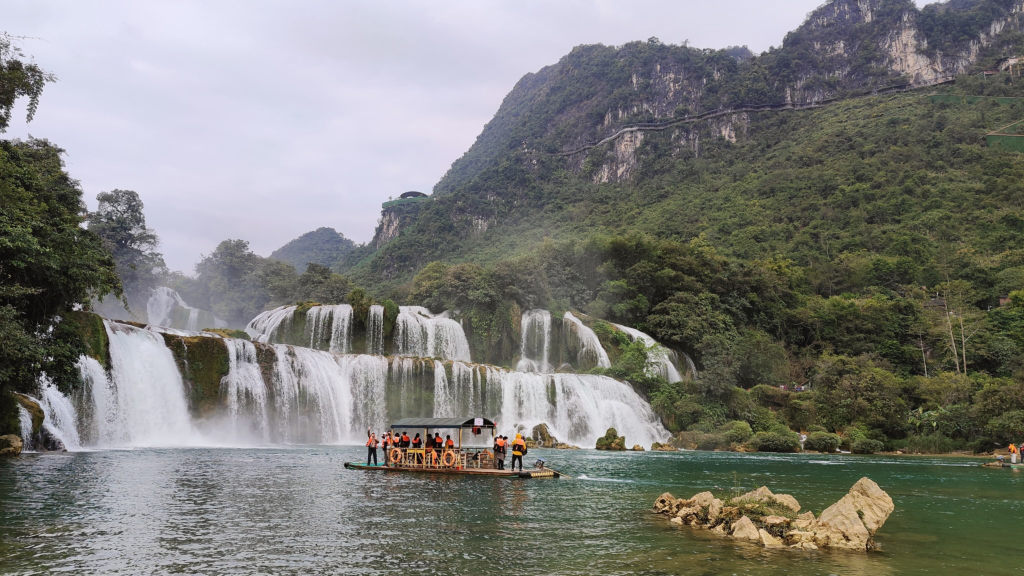

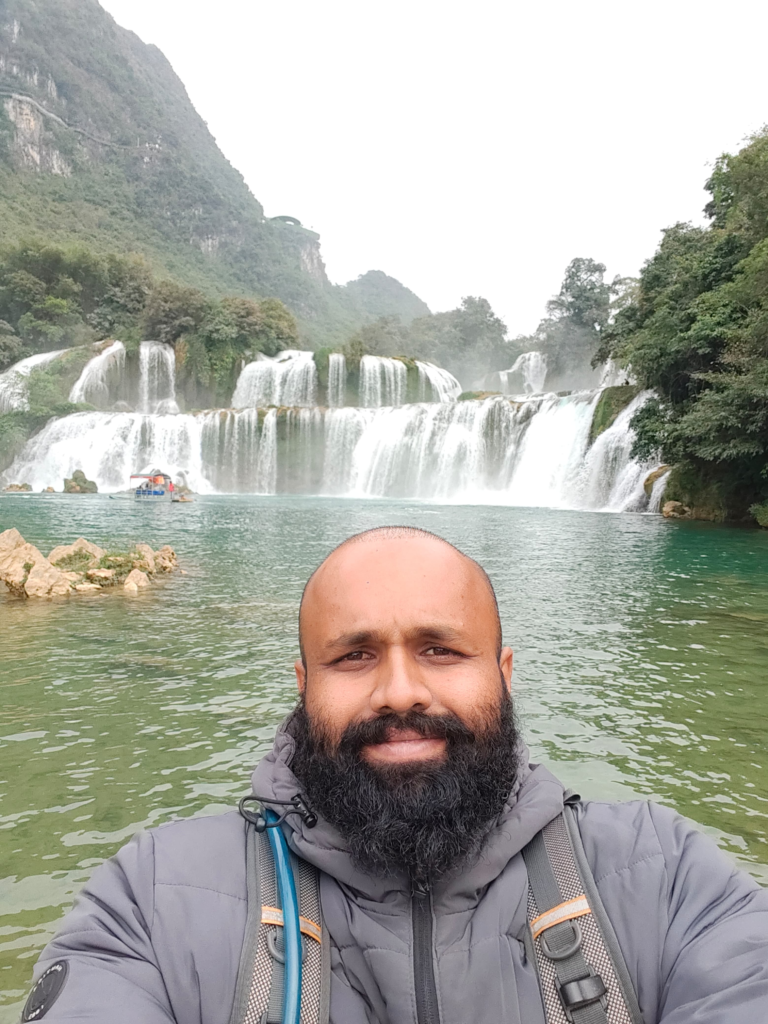
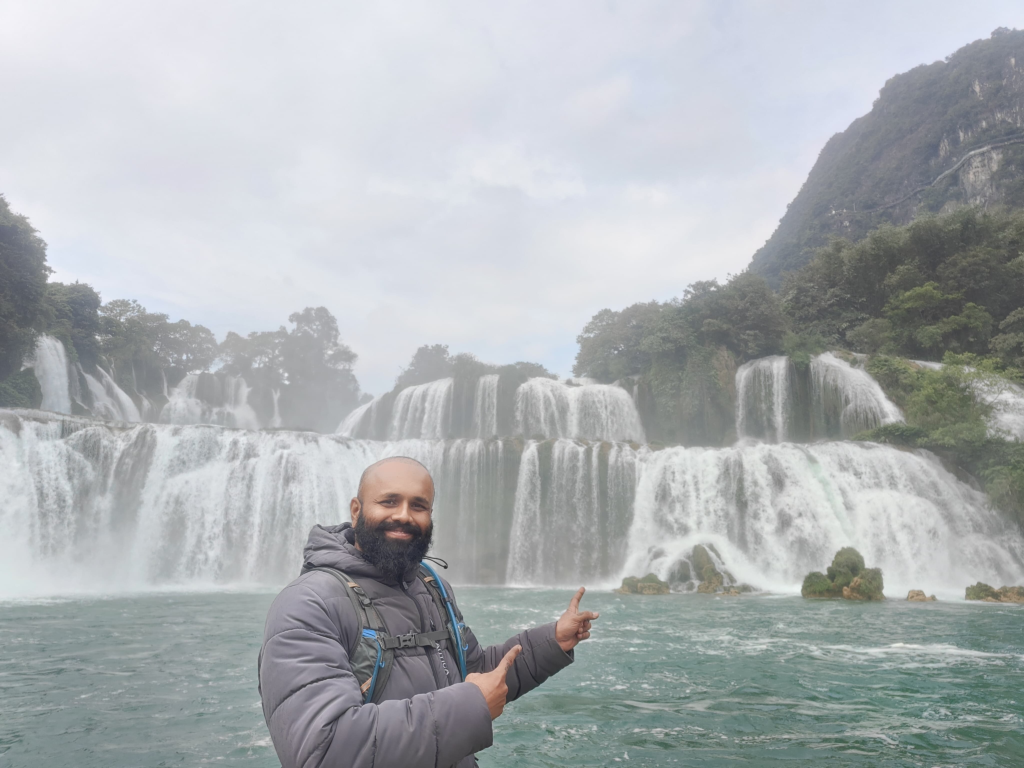




Pac Bo Cave is where Ho Chi Minh stayed for two weeks after returning from exile. As I leave and ride a few kilometers further, the sun breaks through the clouds, bringing me much relief. It’s the first time I’ve seen the sun in five days, a moment worth celebrating. I soak in the warmth as I head north toward the cave. In a nearby town, I stop at a roadside market and buy 0.5 kg of colorful, appealing oranges for 10,000 VND. I eat all but two, which I save in my top box. At a nearby computer shop, I purchase a USB-C cable as a backup before continuing. I can’t resist the delicious-looking Bánh Mì at a stall, so I enjoy one for 20,000 VND before leaving.

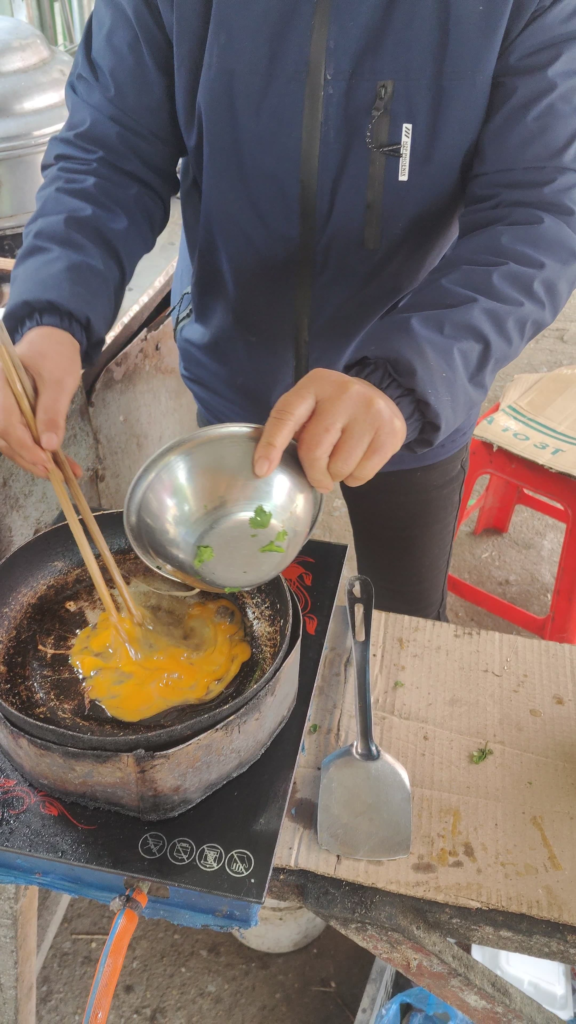
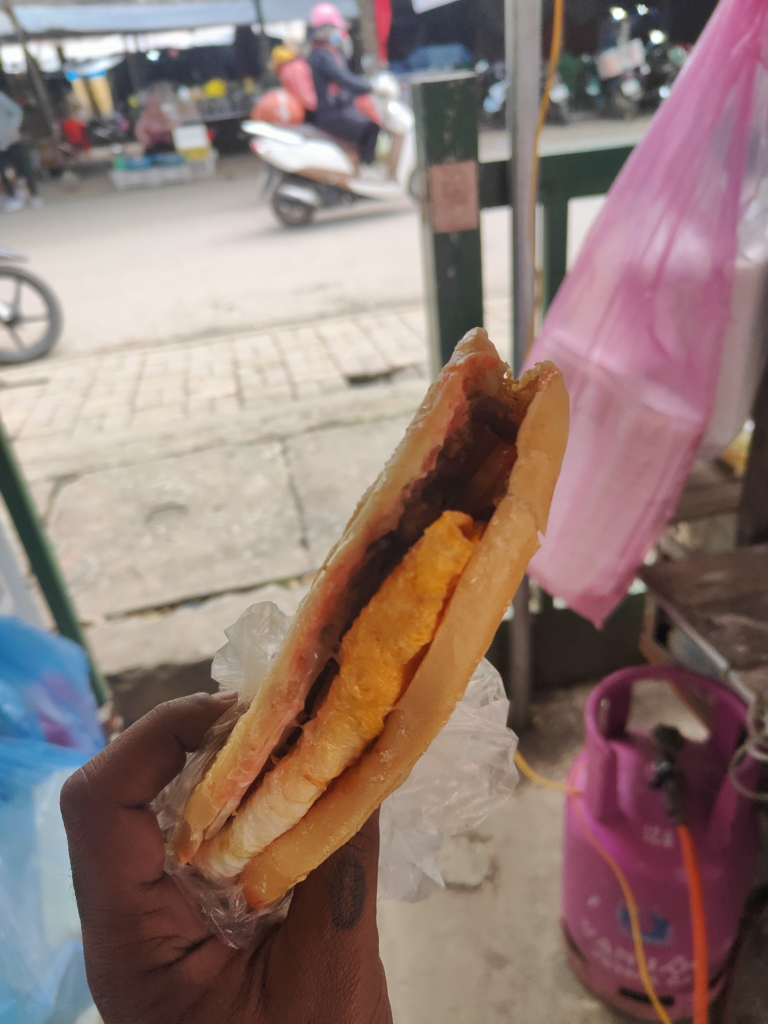
I then take a little-known direct route to Pac Bo Cave. The internal village roads are mostly well-maintained cement paths, although some sections are damaged or unpaved. I do some off-roading on my bike due to the lack of solid roads in those areas.



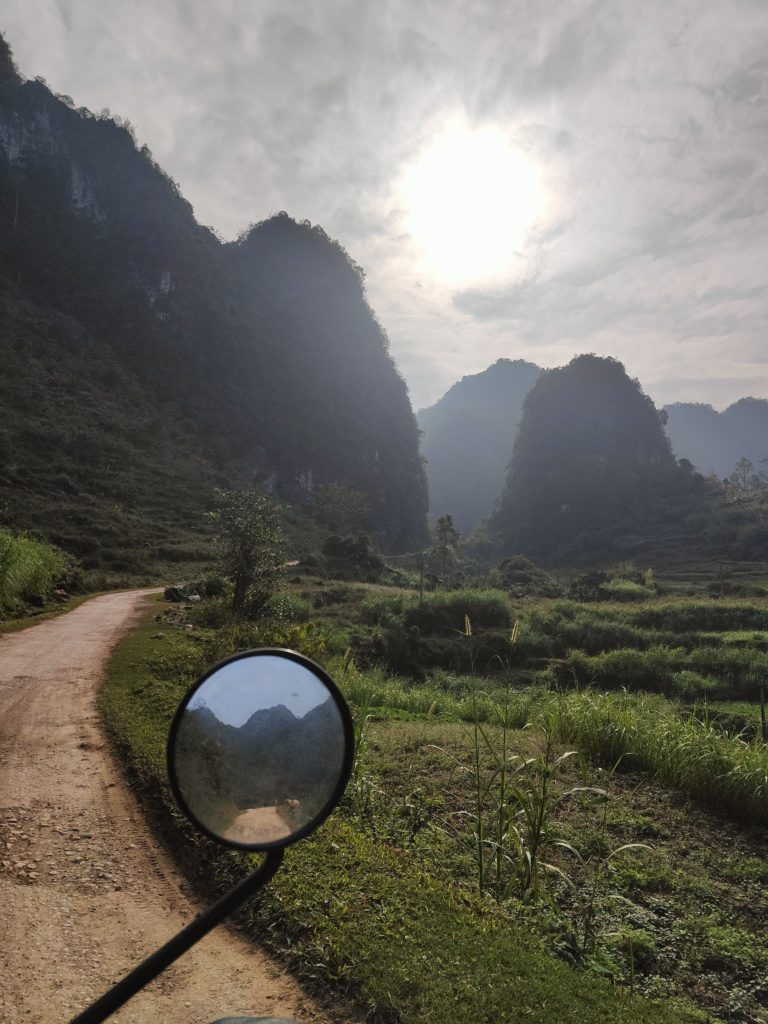
The final section, with its uphill and downhill stretches, is gravelly and tests my handling and braking skills. The steep descent puts a strain on both my front and rear brakes, so I utilize engine braking to relieve the pressure. If my brakes fail here, the consequences could be dire. Once I complete the challenging descent, I arrive in Pac Bo town, home to the cave, which is a well-developed tourist spot. I park my bike and head straight to the cave.
I don’t pay an entrance fee, but I ask the security officer about petrol for my bike. I realize I haven’t been monitoring my fuel closely, and the last mountain climb has drained the engine. I’m in a remote area and worried about running out of petrol, but I decide to visit the cave first and address the fuel issue later. It’s a 750-meter walk to the cave, with the final meters requiring some steps. A stream separates the two sides and is believed to originate near the cave. There are two paths ahead: one goes straight up, while the other veers left. The straight path features a bamboo house with a plaque in Vietnamese.
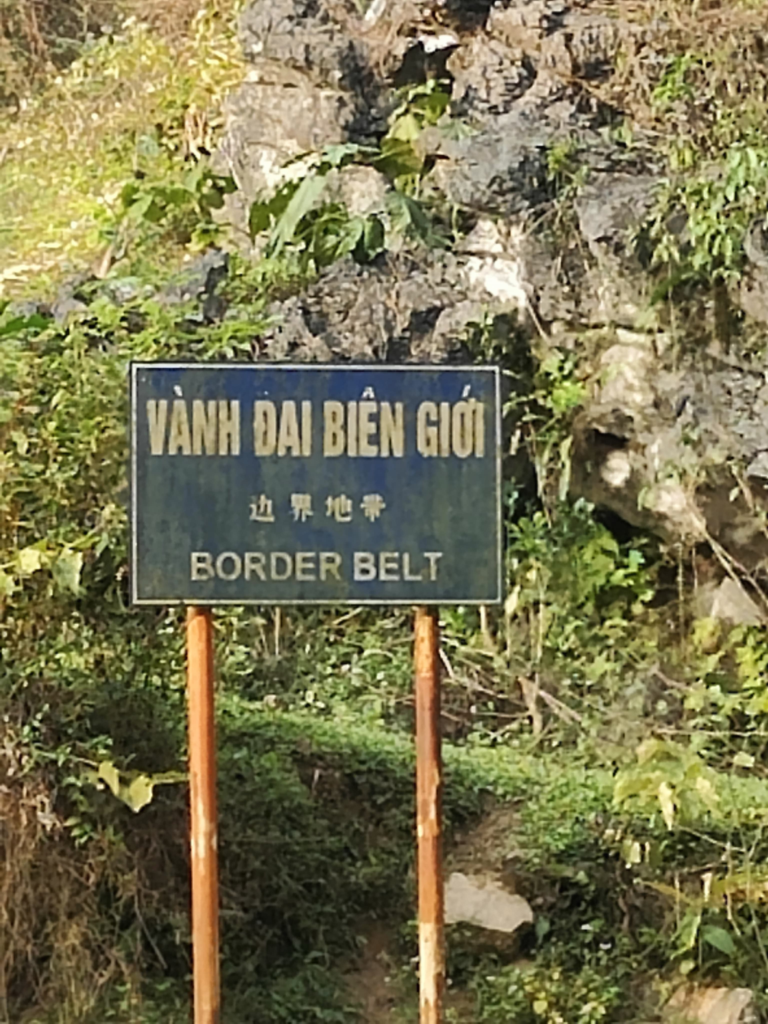
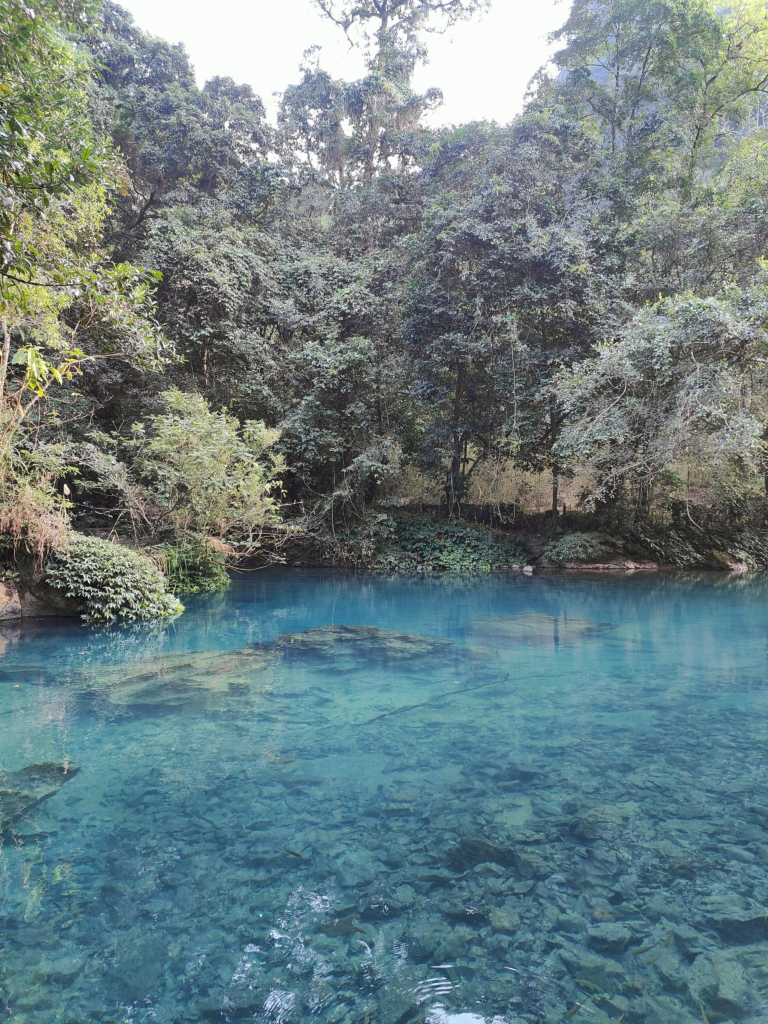
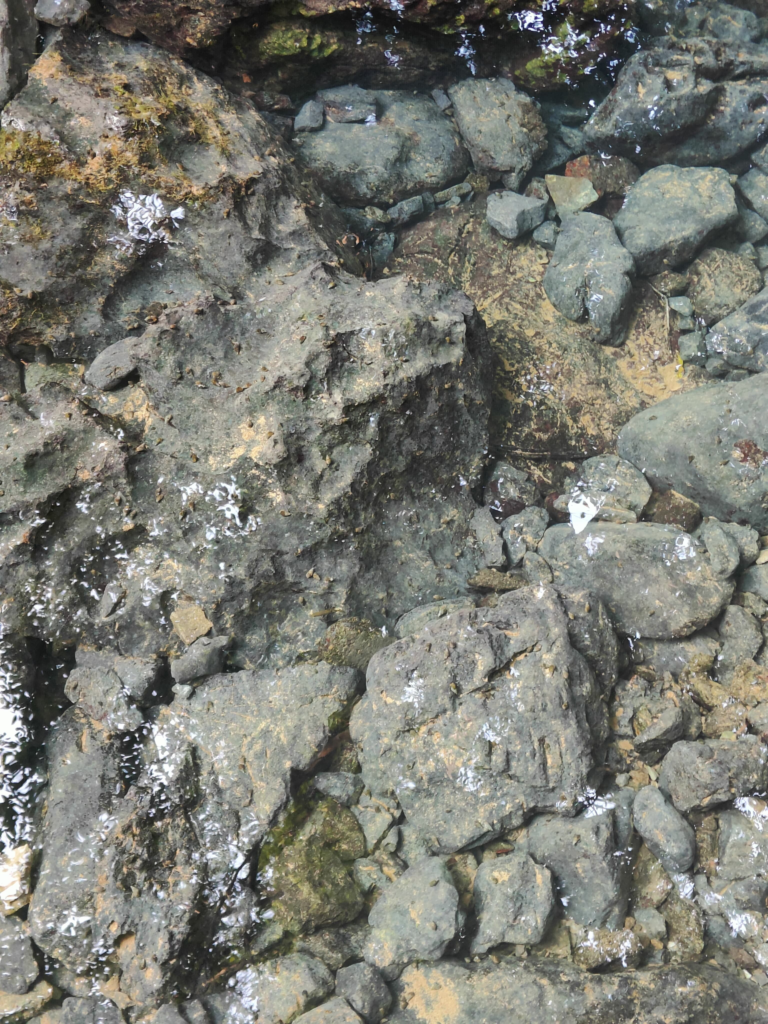
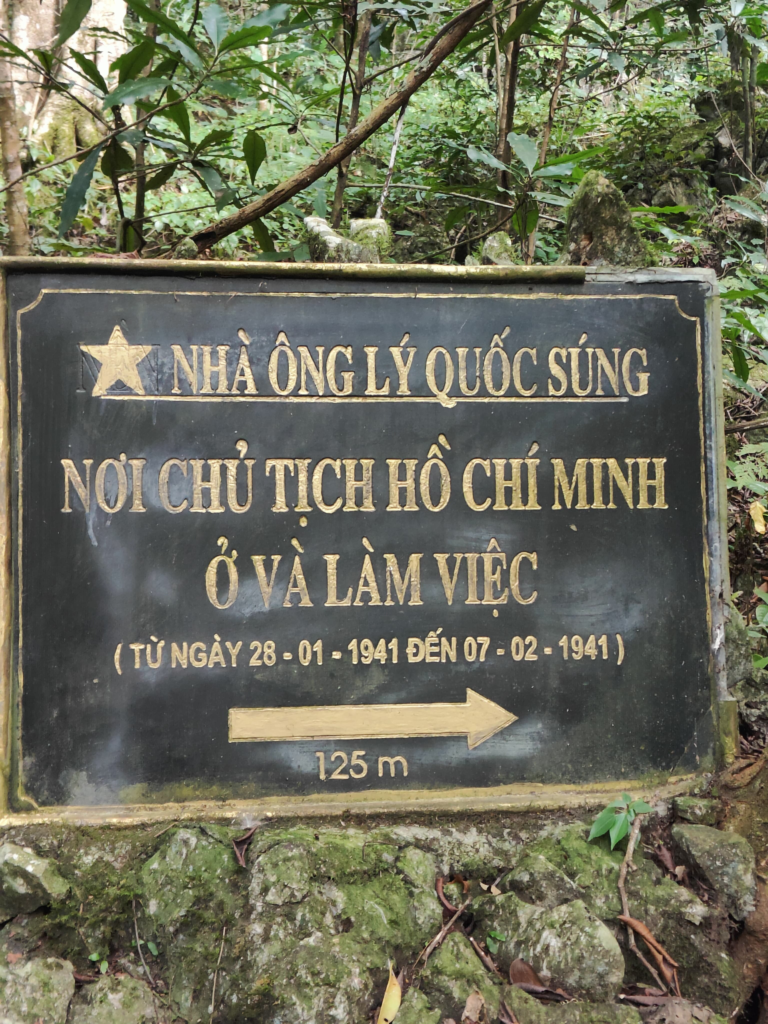
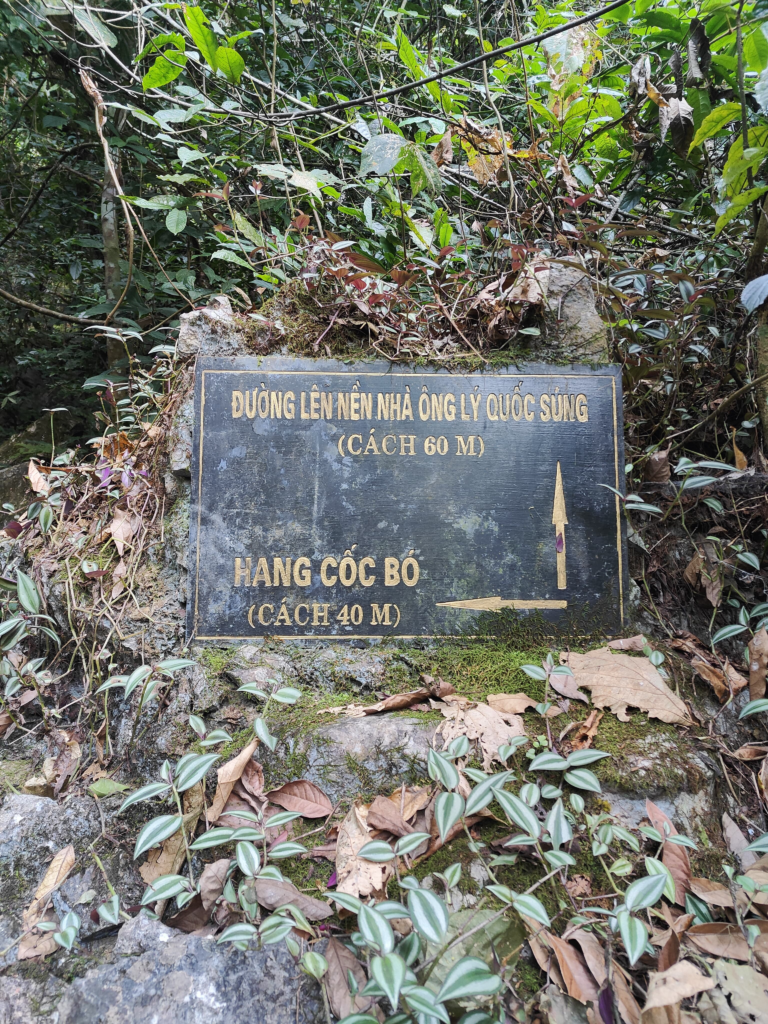
The house has four rooms, including a kitchen and bedroom furnished with a bamboo bed. I exit and turn left towards the cave where Ho Chi Minh lived for two weeks. This natural cave features a makeshift bed and a stone kitchen, surrounded by stalactites and stalagmites.
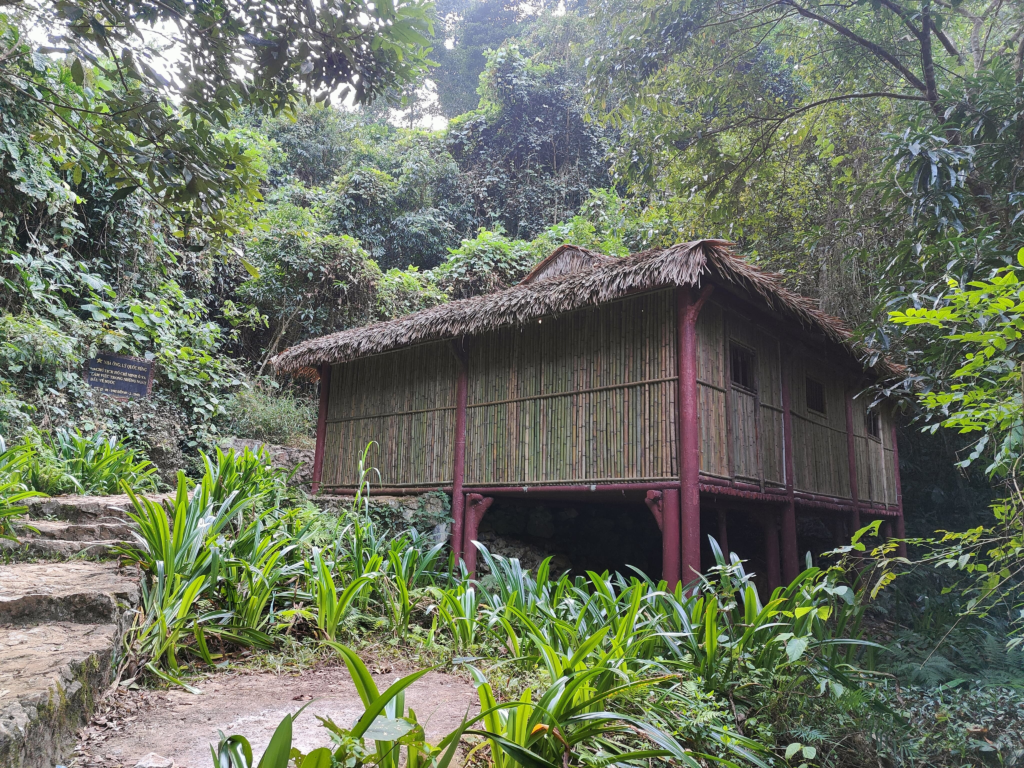
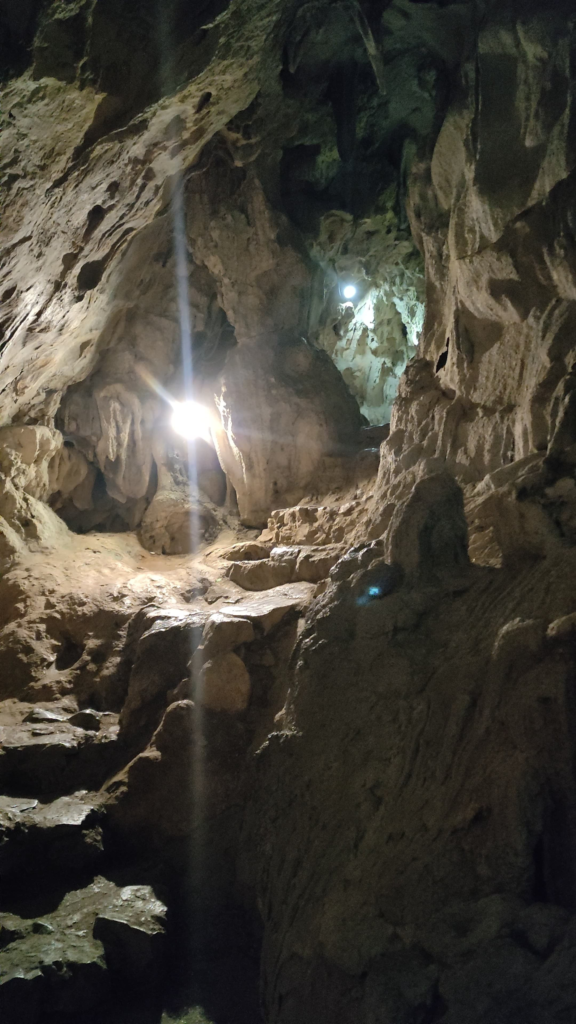
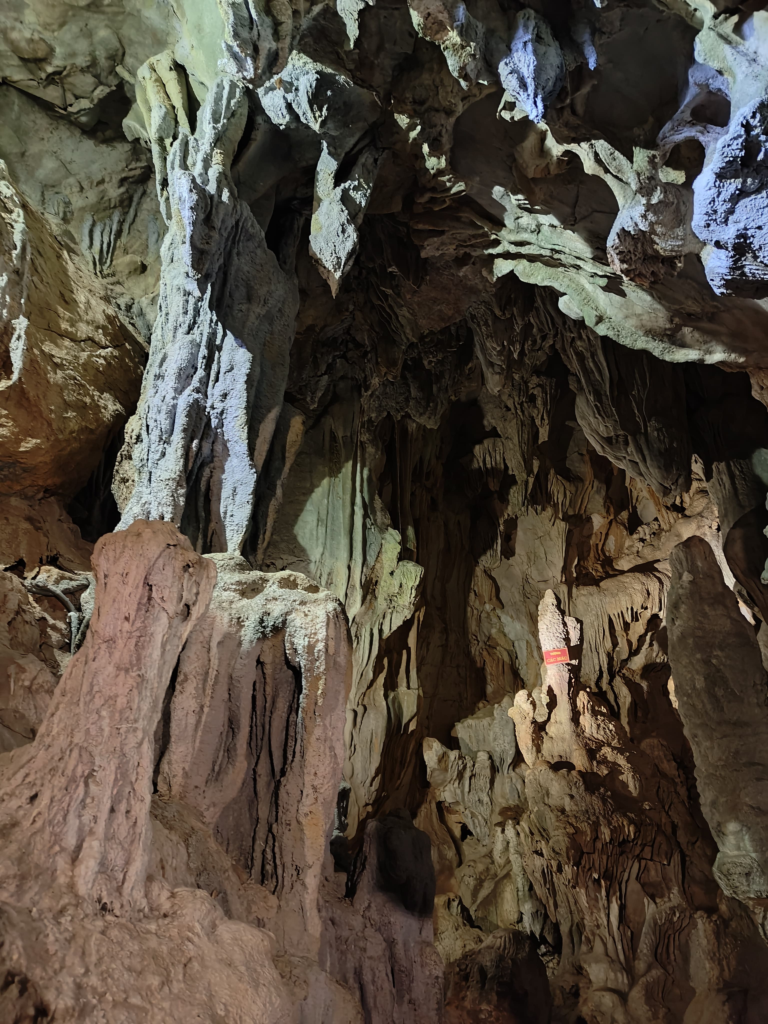
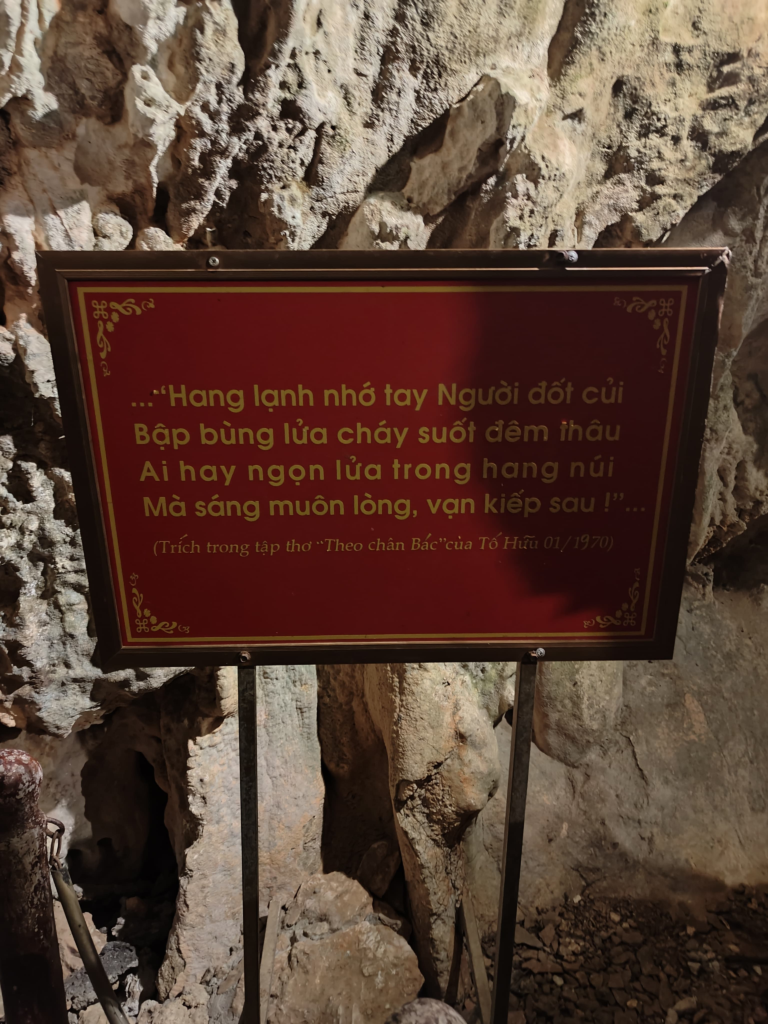
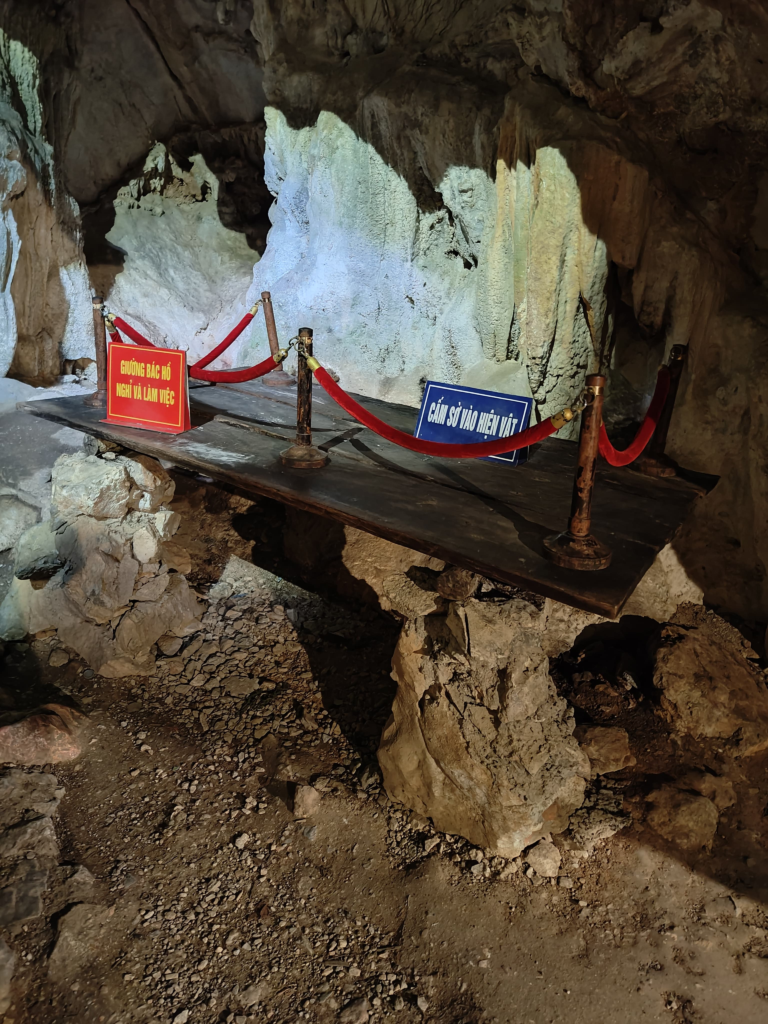
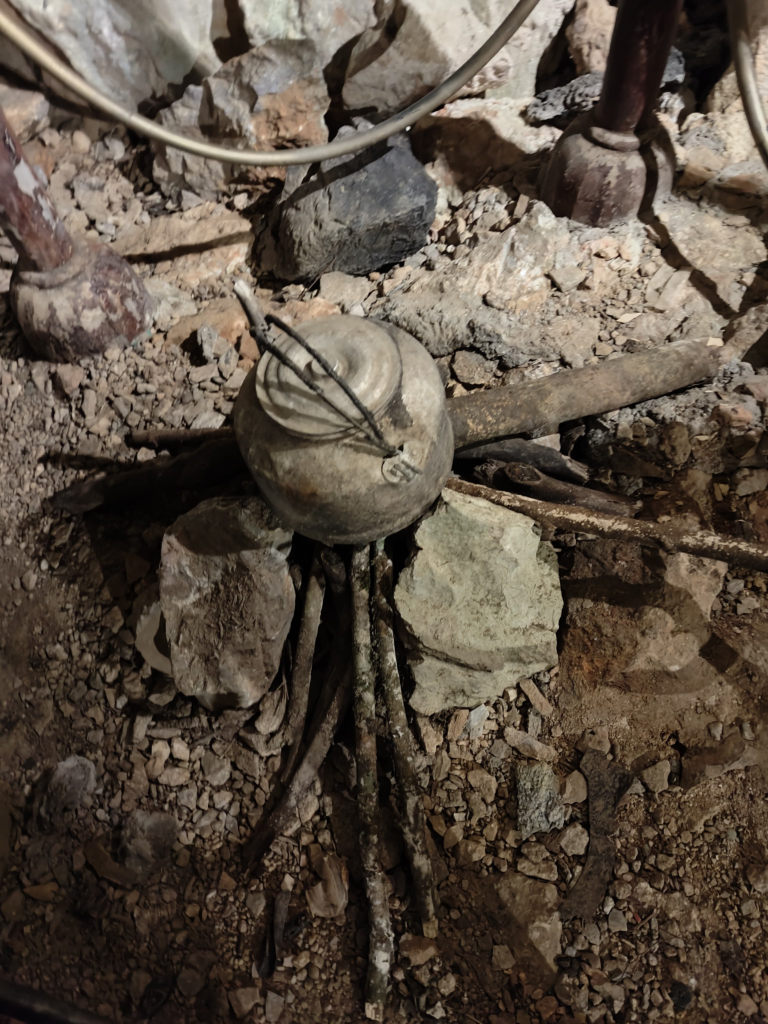
It must have been incredibly challenging to live like this in 1941. We take a different route back, where we see the natural stone table and chair where Ho Chi Minh wrote letters. In front of them is a clear turquoise pond created by a water stream. I fill my hydration bag before continuing.
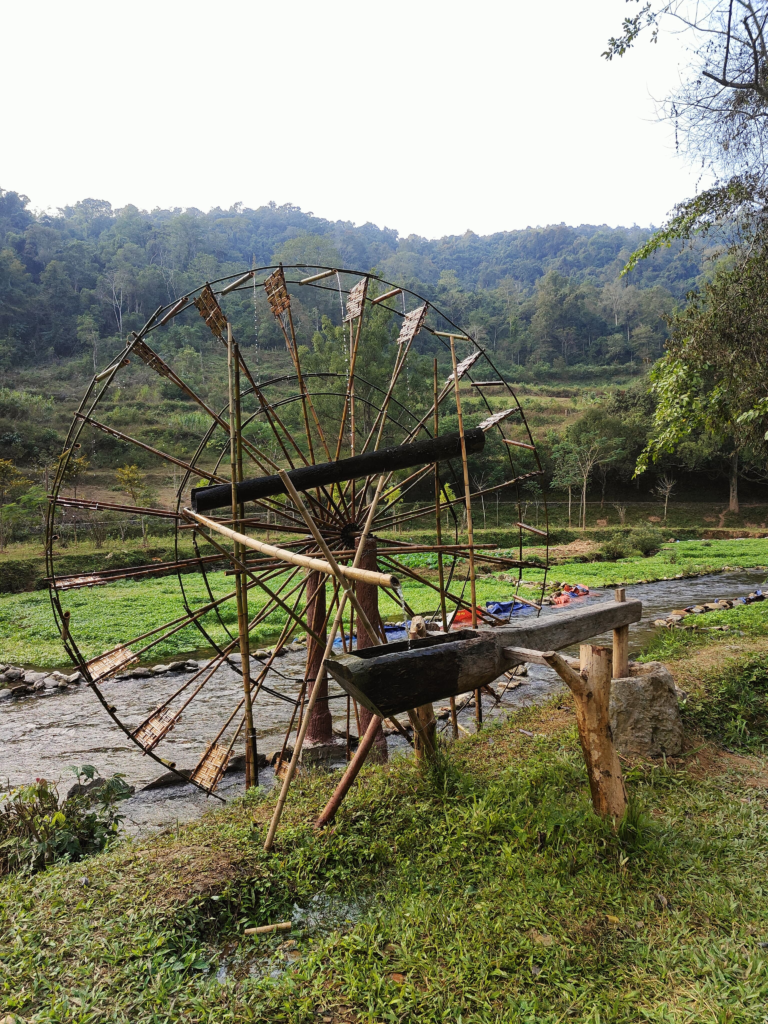
I see a Ferris wheel-like device that lifts water from a stream and transports it via bamboo pipes to a hollowed-out wooden hammer. Water fills the cavity at one end, causing the wooden mallet to pivot downward and drain the water. As it swings back, the momentum is used to grind material with the mallet in a round stone hollow.

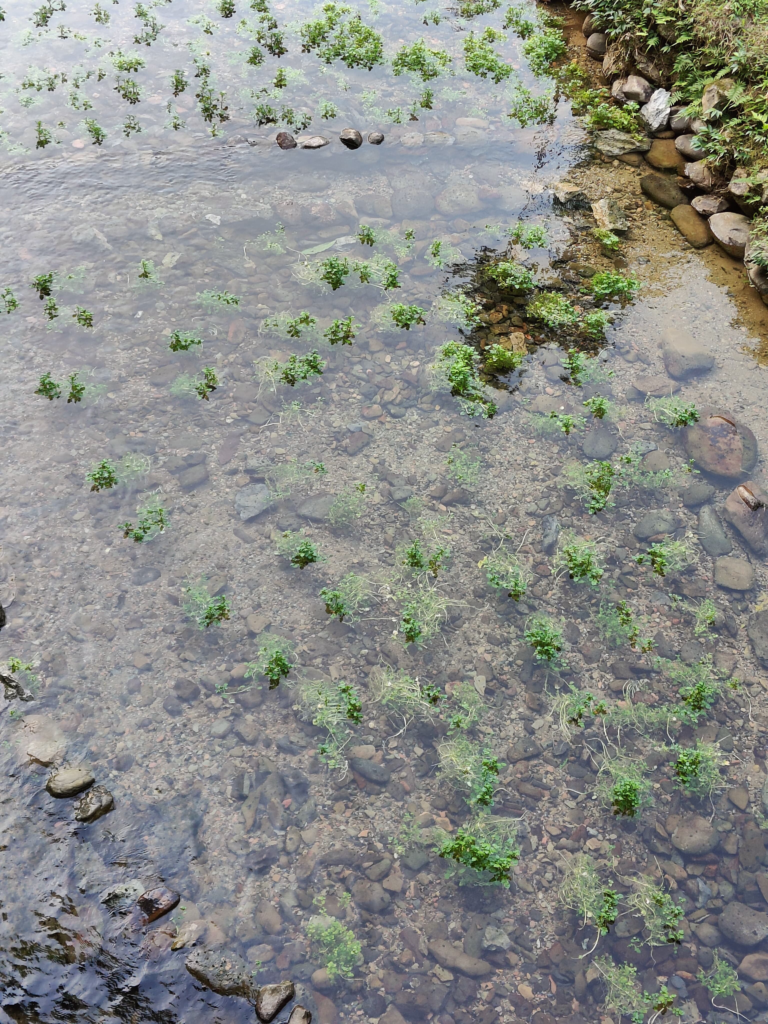
I am amazed by all this and wonder about the person who invented this technique. I head towards the parking lot, it’s nearly 4 PM with only an hour of daylight left. At a shop, I ask a girl for hot water to make coffee. Once I’ve finished my coffee, I hit the road, aiming to cover as much distance as possible before dark or at least reach a town for accommodation. First, though, I need to refuel, as my bike is already on reserve. I regret not checking the fuel meter regularly, especially since the last mountain pass consumed a lot of fuel.
In Pac Bo village, I worried there might be no petrol station, but I was relieved to learn from a local that there is one in the next town. I had been unable to find it on Google.
Once I reach the town, about 5 km away, the locals direct me to my destination, which is 3 km from the junction. I feel relieved after filling the tank, allowing me to push north without worries. After driving for about 20 km, it gets dark and the next town is another 10 km ahead. I have no choice but to stop, as I’m also climbing a mountain pass in the darkness.
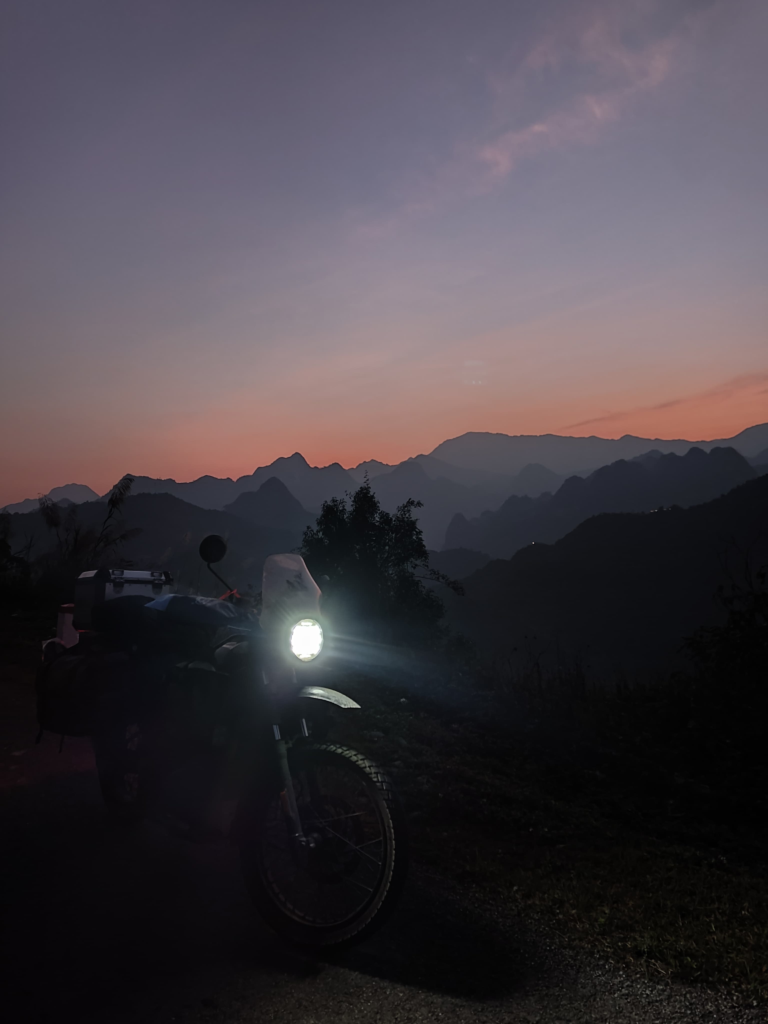
The cold has set in, making me shiver and my fingers freeze. To make matters worse, my GoPro battery dies, preventing further recording. I continue without replacing it and descend into the silent town of ‘Can Yen.’ Stopping to check Google Maps for nearby hostels or homestays, luck is on my side—I discover a highly-rated homestay just 100 meters away. Overjoyed, I backtrack to find the owner waiting for me at the gate.
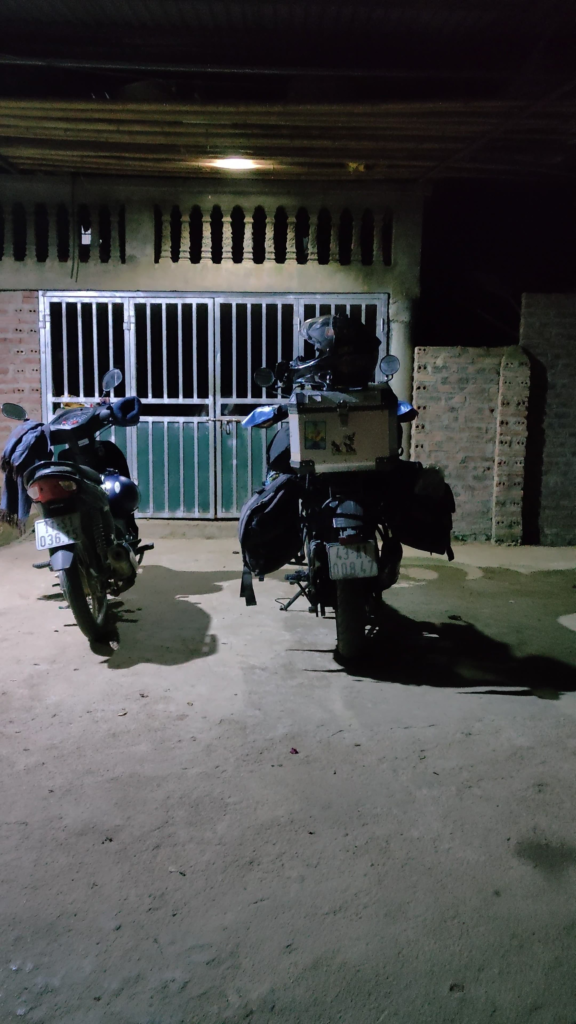
She must have noticed the unusual sound of my bike and come to see who I was. With a smile, she happily welcomed me in. The cozy room offered a warm refuge from the single-digit cold outside. After freshening up, she served me dinner: rice, pork, and spinach soup. The hot meal was a welcome relief from the chill. I finished quickly, thanked her, and enjoyed some oranges she offered. Afterward, I returned to my room, leaving the family to continue their dinner.
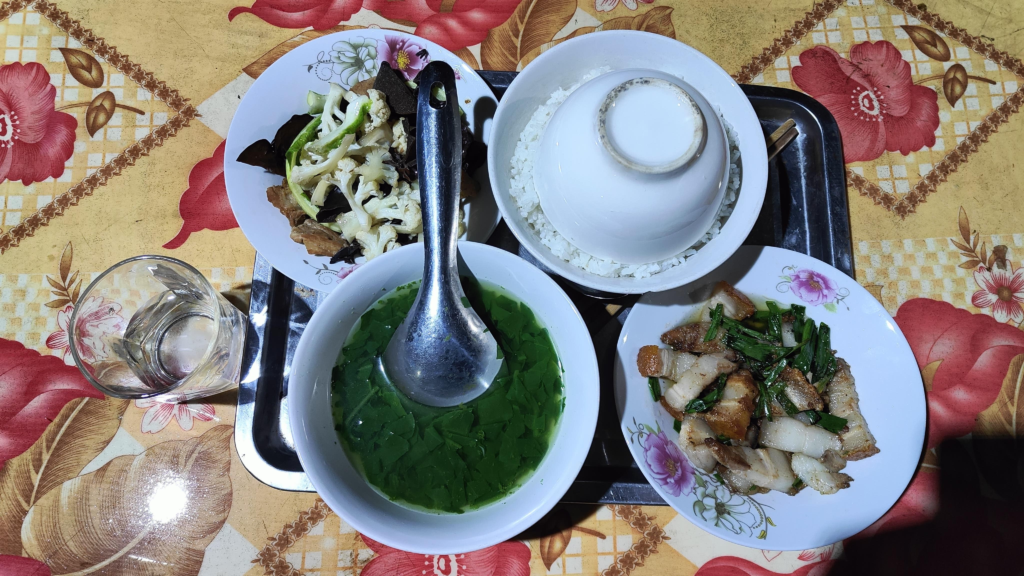
After a while, she asks if I’d like coffee before bed, and I gladly accept. The black coffee tastes great, and I thank her again for her hospitality.
After a tiring day, I skip writing my diary and head to sleep.
